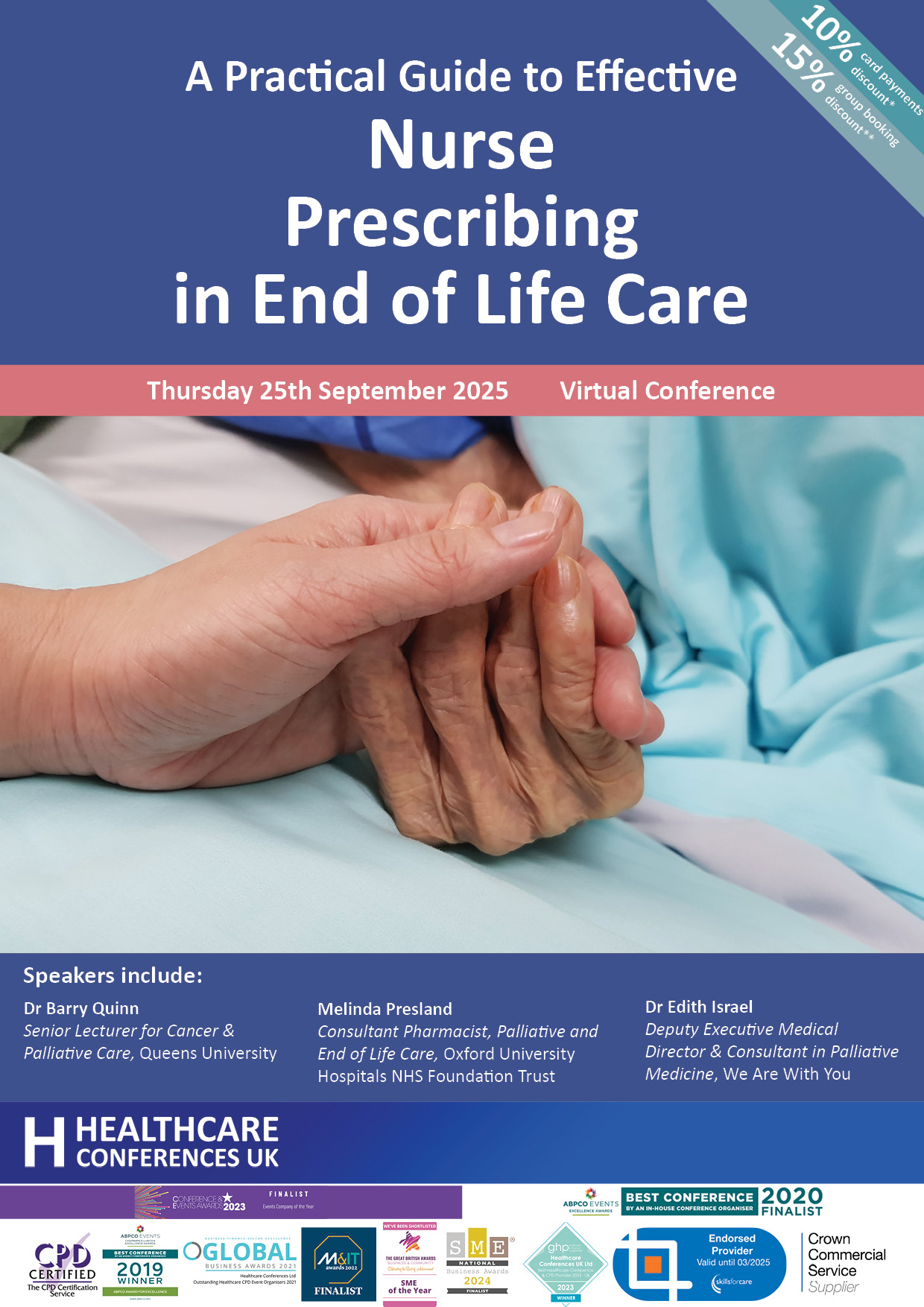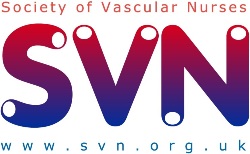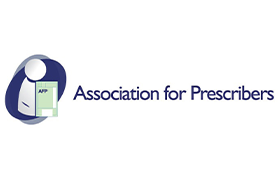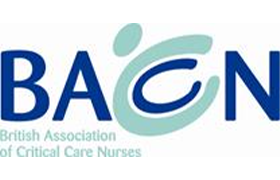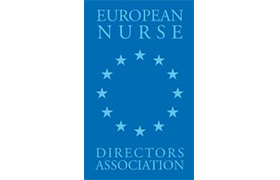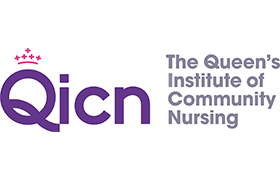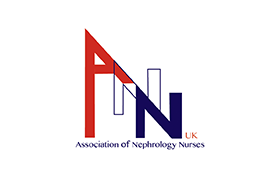Follow the conference on X #NMPEndofLife
“When someone’s in the final weeks, days and hours of life, they need expert care, and they need it now. No one should have to wait for hours overnight or over the weekend in order to get the treatment they need – whether they’re in pain, or have symptoms which need to be managed to make them comfortable.”
Marie Curie March 2024
“NMP in a palliative care context may be one mechanism through which people can be supported to remain at home with well controlled symptoms at the end of life. For example, patients with cancer typically spend 65-80% of their last 6 months of life at home and adequate pain control is often hindered by poor access to effective timely analgesia. These patients often have multiple, rapidly changing symptoms requiring highly specialist management”
Non-Medical Prescribing in Palliative Care: A Regional Survey, Dr Lucy Ziegler University of Leeds
This important national conference provides an essential update for nurse prescribers on prescribing at the end of life. It is widely recognized that pain and symptom control at the end of life is not always optimal, the development of non medical prescribing has a key role in improving pain and symptom control for patients at the end of life. The conference, which includes national updates, extended in depth sessions and case studies will focus on developing your skills and competence as a non medical prescriber in end of life care. The conference will also update nurse prescribers in the issues around prescribing controlled drugs. The Care Quality Commission stated in July 2024 that Prescribing of controlled drugs by non medical prescribers increased by 6 percent last year with over 5,440.585 items prescribed, and nurse prescribing by 1% with 2,524,854 items prescribed. (July 2024)
“We looked at the importance of ensuring that non-medical prescribing is undertaken appropriately, including ensuring it is within the prescriber’s scope of practice. Professional regulators all have expectations of their registrants and provide guidance for safe and effective prescribing. ”
Safer Management of Controlled Drugs Annual Update July 2024
This conference will enable you to:
Network with colleagues who are working to improving nurse prescribing in end of life care
Learn from outstanding practice in end of life care prescribing
Reflect on best practice in prescribing and symptom control at the end of life
Understand how to effectively develop, demonstrate and maintain continued competence in prescribing for patients at the end of life
Reflect on lessons from experts in non medical prescribing for specific case study areas with in depth interactive sessions focusing on Nurse Prescribing for Pain, Nurse Prescribing in community settings, Controlled drugs and use of drugs beyond the product licence, The use of Syringe Drivers and Syringe Driver combinations, Best practice in prescribing for symptom control at the end of life, Nurse prescribing within a hospice setting, Anticipatory prescribing and Prescribing within End of Life Care Clinics
Ensure you are prescribing to avoid cognitive side effects and delirium at the end of life
Identify key strategies for improving nurse prescribing practice at the end of life
Develop your role and confidence as a nurse prescriber
Self assess, reflect and expand your skills in prescribing practice whilst understanding your limits of practice
Supports CPD professional development and acts as revalidation evidence. This course provides 5 Hrs training for CPD subject to peer group approval for revalidation purposes


